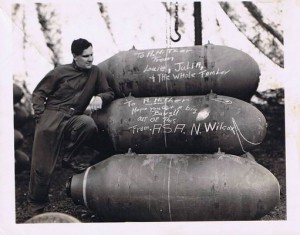War: “It’s So Personal”
 After I screened a portion of the British Broadcasting Corporation’s The Great War: The Devil is Coming (1964) which included footage from the 1916 film The Battle of the Somme, I asked students for their reactions. Immediately, a student responded, “It’s so personal.” Other students agreed.
After I screened a portion of the British Broadcasting Corporation’s The Great War: The Devil is Coming (1964) which included footage from the 1916 film The Battle of the Somme, I asked students for their reactions. Immediately, a student responded, “It’s so personal.” Other students agreed.
As someone who grew up during the Vietnam era, I still remember having war footage broadcast into my home each evening during the 6:00pm news. I remember the daily casualties and the flag draped coffins. I remember that, because of the draft, we all knew families who had–as we did–someone serving in Vietnam. The impact of the Vietnam War was personal for me and my family.
When I was a child, I used to hear stories about the procedures that were practiced to black out Unionville, Michigan in anticipation of a potential World War II air raid. All of the lights in the town were turned off and my grandfather Alexander Liberacki and other men would be stationed at each of the four roads leading into town where they would ask motorists to turn off their automobile lights before proceeding. War, for my parents, included ration books that impacted family decisions on a daily basis. A family photograph from the period shows Stan Sokolowski next to two bombs on which he had written messages to “A. Hitler” from members of the family. He was not the only family member who saw combat. World War II was very personal.
Stan was born the year after the Battle of the Somme. Draft registrations record the number of my family members and other men in their communities who registered for the draft. My grandfather Ferdinand Berg and his cousin were both soldiers in the Great War; one in the United States army and one in the German army. These cousins could have fought against each other in the trench warfare which my students witnessed in the archival footage from 1916. War, for my grandfather and his cousin, was not shooting missiles at each other from miles away. It was looking your enemy in the face and watching your friends die.
Since most of my students were in first or second grade, America has been fighting a war on terror. Yet, it took learning about a battle that was fought almost a century ago for war to become personal.
One of the goals of the Schoolcraft College history department is to help our students relate the human experience—using history—to contemporary times. Fortunately, we have history and the humanities to help our students and the rest of us remember that war is personal.
- –Steven L. Berg, PhD
I remember at age 4-5 World War II.My Dad was in the infantry and my Uncle was a P;O;W; He had been captured after bailing out of a plane where he was a bombadier. I remember my Mother crying each night and me crying with her. I remember riding on the bus with my Mother through Germantown, Indiana, and thinking that the people outside were the awful Germans.
I also remember like Steve watching evening TV on the news of Viet Nam. One night I saw on the news an announcement that in the 1968 Battle over Tet one of my college classmates, Marge Nelson, had been captured. She, a Quaker and doctor, had been working for the American Friends Committee helping the people in Viet Nam. Two months later I saw on the news that she had been released, for our enemy discerned that she was not an enemy but was someone who loved people. Here are two parts of her story. https://afsc.org/story/taken-prisoners-viet-cong http://www.friendsjournal.org/3011012/